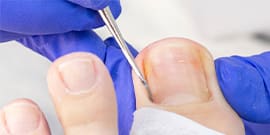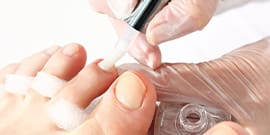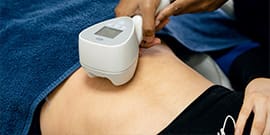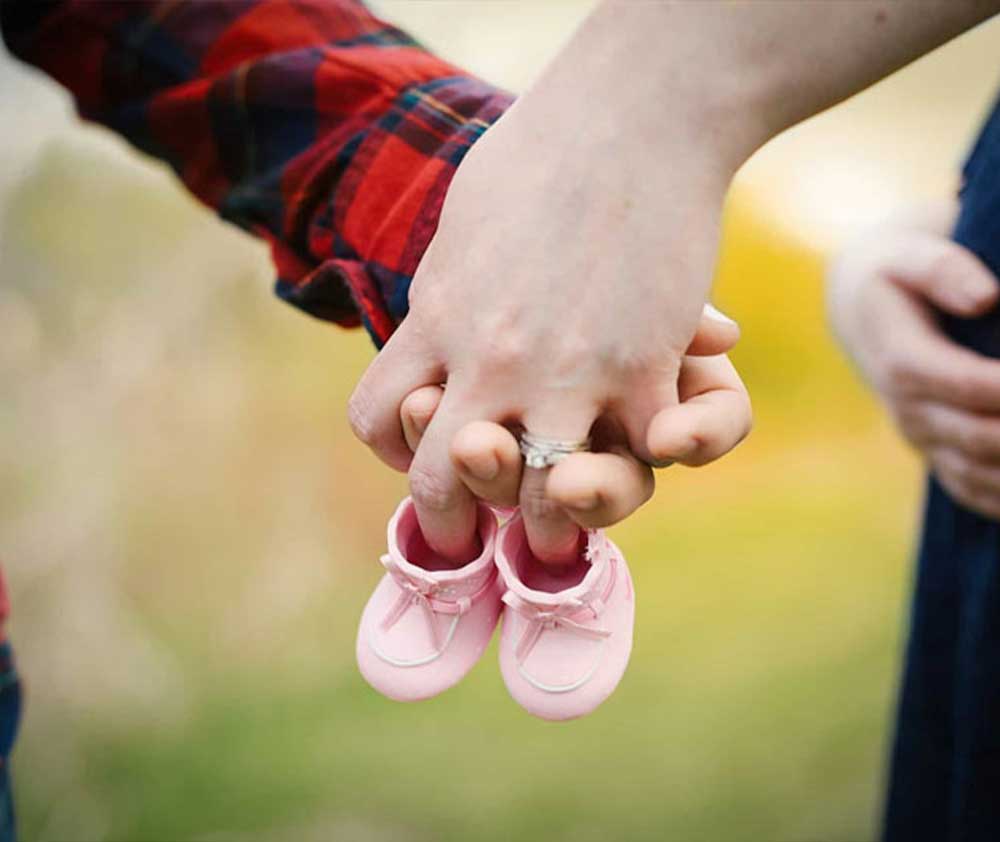Feet During Pregnancy
During pregnancy, the body pumps powerful hormones into the blood stream which help baby to develop and loosen the mother’s joints in preparation for the birth. While the more common side effects associated with pregnancy tend to be nausea/sickness and back pain, these hormones can also have an effect on the feet and ankles.
Swelling and pain are some of the things that can occur during pregnancy, but even smaller things such as adjusting the way you walk to compensate for the shift in your balance plays a role in the health of your feet during pregnancy.
(Opens in new tab)
What happens to the feet during pregnancy?
Natural weight gain during pregnancy shifts the centre of gravity. To keep balanced it is necessary to change walking positions and postures. Extra pressure on hips, knees and feet may result.
Not being able to reach your feet in the later parts of pregnancy, swelling, cramps, aching, itchiness and varicose veins – none sound good! However, foot problems need not be inevitable during pregnancy.
Common problems include swollen legs and feet, arch and heel pain and varicose veins. You shouldn’t have to put up with foot pain. It can take up to 12 months for feet to recover after pregnancy. A podiatrist can advise on treatment and prevention of your foot pain, footwear and lower limb problems.
Swollen legs and feet
The uterus puts pressure on veins in the pelvis, slowing down the return of blood to the heart. The blood vessels in the feet are some of the smallest in the body.
It is important to contact your GP or Midwife immediately if you get swelling in your face or around your eyes, noticeable swelling in one leg more than another, sudden or excessive swelling in your legs and feet or hands, persistent pain, excessive itchiness on the skin of feet and ankles, particularly soles of feet, severe or prolonged cramps, skin lesions or moles, excessive or unusual bruising.
Self-help:
- Put your feet and legs up whenever you can.
- Stretch your legs and feet whenever possible when you drive.
- Don’t stand still for long periods of time without a break.
- Wear comfortable, supportive footwear, ideally with a strap, laces or velcro fastenings.
- Don’t cross your legs or ankles when sitting.
- Ideally, choose a heel height of 3cm as this shifts the centre of mass a little further forward.
Arch and heel pain
Pain in the arch, heel and other ligaments can occur due to the changes in the foot shape during pregnancy. Due to the inevitable increase in your weight, the strain on your feet can lead to a reduction in the arch height. This can be due to changes in the joint, ligament and other soft tissue alignments. The effect of pregnancy hormones can play a part in this. Commonly the heel and balls of the feet are painful.
All these changes are normal and expected, but they can be painful. They are usually transient but will benefit from assessment and appropriate support and advice from your podiatrist.
Self-help:
- Stretch daily and especially after exercise. Warm up before exercise (check with your GP or midwife first).
- Choose comfortable, supportive footwear that provides extra shock absorption.
- Choose shoes that have a strong supportive arch and firm heel.
- Wear a lower heel, under 3cm.
- Don’t walk barefoot or in backless shoes.
- A podiatrist will be able to provide orthotic devices to treat problems where appropriate.
Varicose veins
Enlarged blue or purple twisted veins may appear under the skin, especially on the lower calves or between the ankle and top of the thigh. Sometimes these are accompanied by swollen or heavy-feeling legs. They can feel itchy, ache or throb.
During pregnancy circulation in the lower body becomes sluggish. This can cause blood to pool in the veins. Pregnancy hormones also have an impact, causing the walls of the blood vessels to relax. This in turn causes the walls of the veins to distend and widen. The veins then take on a bulging appearance.
Self-help:
- Put your legs and feet up whenever you can.
- Don’t stand still for a long period of time without a break.
- Don’t cross your legs or ankles when sitting.
- Wear comfortable, supportive footwear, ideally with a strap, laces or velcro fastenings. Ideally, use a heel height of 3cm.
- Take regular exercise to help boost circulation, (check with your GP or midwife first).
- Wear surgical stockings – with advice from your GP, midwife or podiatrist.
If you experience sudden or excessive or unexplained swelling, redness or pain in one or both legs or feet; or sore lumps near the enlarged veins, bleeding veins or enlarged veins, contact your GP or Midwife immediately. Complications of pregnancy can be deep vein thrombosis, cellulitis or other serious problems.
Hot tired feet? We can help! Treat yourself to a relaxing Medical Pedicure – book now!
Footwear during pregnancy
Many women report their shoe size increases by half to one size during and after pregnancy. So, what should you look for in a good shoe?
- Feet tend to swell during the day, so buy shoes later in the afternoon when your feet are at their largest.
- Try on both shoes and walk around the shop to check if they rub or pinch.
- Make sure there is 1cm between the longest toe and the end of the shoe.
- Choose a shoe with a strap to keep it firmly on your foot, avoiding fiddly straps which are difficult to do up – especially in the final trimester of pregnancy.
- Keep heel height to about 3cm.
- Make sure the shoes have enough width and depth to accommodate the foot.
- Don’t rush when buying shoes. Take your time and make sure they fit properly.
- Choose supportive footwear with extra shock absorption, supportive arch and firm heel.
- Choose shoes with a toe box that is high enough and wide enough to comfortably fit, either rounded or square shaped, not pointed.
Get feet during pregnancy treatment in Nantwich today!
Call now: 01270 627118
Book your pregnancy foot treatment appointment with The Nantwich Clinic by calling the number above.
Alternatively, you can use the link below to book online.
(Opens in new tab)

Core Podiatry
We provide treatment options for many different foot and toe nail issues, including athlete's foot, chilblains, ingrown toenails and verruca's.

Cosmetic Podiatry
Cosmetic podiatry is an emerging field in podiatric care that addresses the aesthetic cocerns as well as the functional concerns of the feet.

Aesthetic Treatments
How Can We Help You
Whether it’s a quick question that you need to ask, or you would like to book an appointment with us, we want to hear from you. Simply fill in the form below or contact us on 01270 627118.

